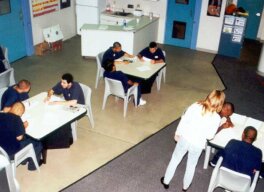Licensed therapist and Orange County reserve deputy Jorge Galindo possesses more than 20 years of experience working with clients in residential and outpatient settings. Jorge Galindo has run a private practice alongside his spouse, Miriam Galindo, Psy.D., since 2000, where he conducts individual and marriage counseling sessions.
Poor communication is one of the leading causes of divorce. Couples with unhealthy communication tactics such as stonewalling can establish negative patterns that eventually erode trust and intimacy. Stonewalling refers to the refusal to engage in conversation about certain topics by walking away or shutting down.
While stonewalling can occur in reaction to a long history of relationship conflict, many people use stonewalling as a defense mechanism to avoid emotional pain. Counseling can bring insight into the reasons why a partner shuts down. It may be an outdated coping skill learned in childhood, or a reaction to fear. Once the reasons for the stonewalling have been identified, partners can then learn more respectful communication strategies to rebuild their relationships.




